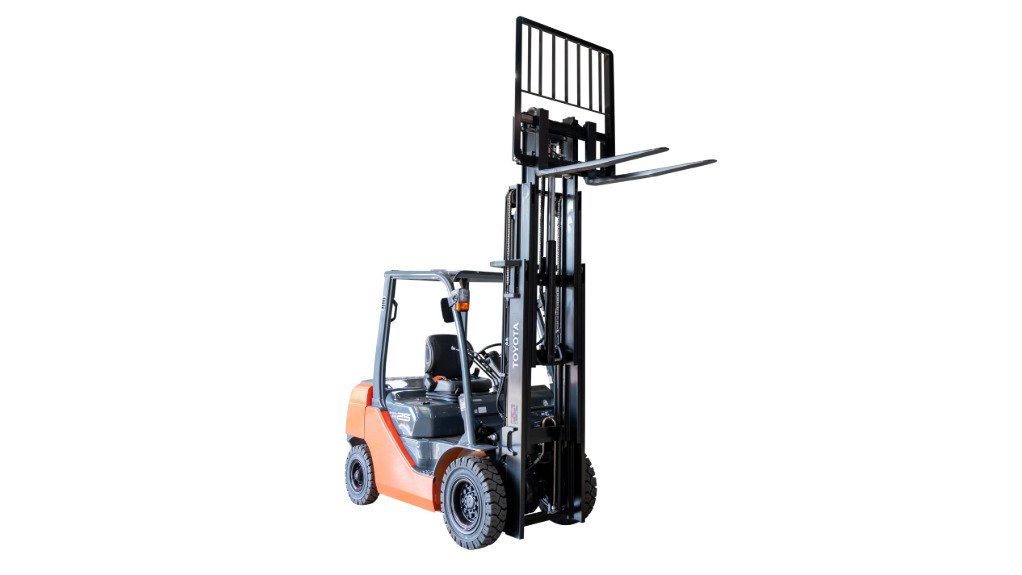There has been a boom in most sectors following the Covid-19 pandemic in 2020, and according to materials handling equipment supplier Toyota Material Handling, this has resulted in a need to establish “proper systems and controls” in supply chain and logistics management to reduce risks.
“Our business understands the importance of effective data management and efficient fleet management,” says Toyota Material Handling national sales manager Vuyokazi Bangazi.
She explains that technology is critical in managing the risks associated with goods transportation and it has “tremendously improved” communication and transportation management, from original-equipment manufacturers (OEMs) to final destination.
For example, Toyota Material Handling has introduced the Toyota Smart Environment Sensor plus (Sens+) to its materials handling equipment. The Sensor is a safety feature and linked to a rapid response app that equipment operators can use to log maintenance requirements and request breakdown assistance from a technician.
Bangazi explains that this goes directly to the company’s aftermarket controller who signals the team, which then communicates with the respective technician to go out to the customer, to attend to the breakdown.
The sensor will also detect objects and pedestrians and will support operations by notifying the equipment operator – through a warning buzzer and warning light – to help to prevent accidents. The feature is currently incorporated into the company’s forklifts.
Last year, Toyota Material Handling recognised the importance of having a telematics department that could focus on managing its telematics information to support fleet management, creating a competitive advantage for customers.
Consequently, Toyota Material Handling introduced the I-site system, a telematics system fitted into its equipment.
Bangazi says the system uses online data from Toyota’s smart trucks to measure, analyse and optimise the performance of every connected machine, helping to improve productivity and reduce materials handling operating costs.
Inventory Optimisation
“Logistics management is essential for businesses to thrive in a highly competitive market. It is very important that we streamline processes and systems to ensure seamless and effective management of supply chain operations,” stresses Bangazi.
Every country has different challenges and the company’s aim is to implement and manage an effective and efficient way of transporting its products across the country and its dealer network.
However, she adds that lead time to deliver may pose a challenge, which is why Toyota Material Handling plans its inventory optimisation to ensure a balance of holding inventory and delivering to stakeholders.
Bangazi explains that the company has dedicated offices in every province in South Africa, which assist in managing the inventory effectively to ensure stock is available to meet demand.
Toyota Material Handling manages its ongoing processes from a dedicated facility, in the Durban region, that distributes its inventory from a central point to its regional offices.
Bangazi concludes that there are times when unforeseen challenges related to the import of stock from the company’s OEMs – such as port congestion or unplanned delays – interfere with operations, but emphasises that when such challenges arise, Toyota Material Handling is able to navigate them.
Edited by: Nadine James
Features Deputy Editor
EMAIL THIS ARTICLE SAVE THIS ARTICLE
ARTICLE ENQUIRY
To subscribe email subscriptions@creamermedia.co.za or click here
To advertise email advertising@creamermedia.co.za or click here













